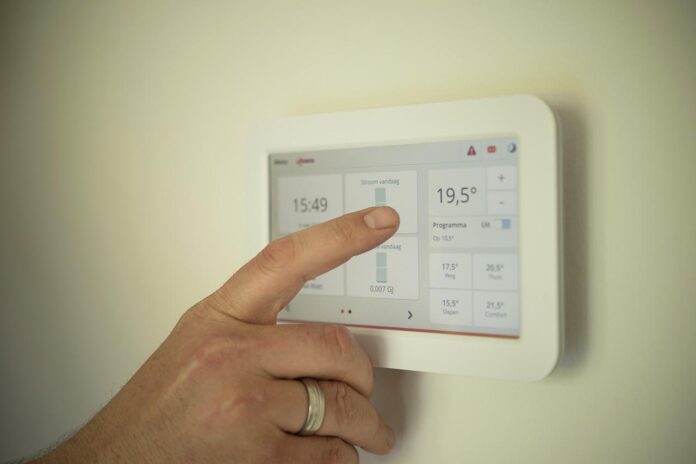There is a good chance that you like to have a welcoming and warm home, especially during the winter months. Unfortunately, it’s easy to forget how much you rely on your boiler to keep you content and warm at home. Studies have shown that hot water and heating from the boilers contribute to at least sixty percent of what you spend on your energy bills each year.
Therefore, because more than half of the energy bills come from the boiler, it makes sense to know when you need to replace with new boiler. In this way, you can lower the energy the boiler requires to work effectively. This article discusses everything you should know about boiler replacement.
The advantages of utilizing boiler systems for heating
In most cases, you can find two major types of heating systems in most forms. These are the hydronic boiler and the forced-air furnace. Both types of these heaters tend to have long histories which go back to the time when people used coal as fuel. During that time, coal furnaces were installed in buildings to generate heat.
Nowadays, most furnaces and boilers operate using natural gas. This means that you need to purchase natural gas from gas suppliers to run these boilers. Furnaces and boilers can also function using electricity, but this makes them more expensive to operate.
Many homeowners prefer to use boilers rather than furnaces that have ductwork. This is because boilers are considered to be energy-efficient. A boiler doesn’t experience a lot of heat loss when it’s operating. The reason for this is that water happens to be more effective when it comes to transferring heat compared to air. With a furnace, it needs to heat air before sending it to the rooms while a boiler heats pipes and water at the terminal points. Because there is an effective transfer of heat through water, a boiler uses less energy than a furnace.
There is also a fast and even heating with a boiler. The problem with a furnace is that it tends to blow out heated air that collects at the room’s ceiling. It takes longer for this heat to get through the entire room. There is also an uneven spread of heat, leaving cold areas. On the other hand, a boiler doesn’t blow heat into your room. Instead, it radiates heat into your room by heating its surfaces. As a result, this can heat your room more evenly and faster.
A boiler also doesn’t need a lot of repairs and has a long service life. A boiler doesn’t have many moving parts, so they don’t suffer a lot when it comes to wear and tear over time. Therefore, you can expect a new boiler to last at least five years of performance. The fewer the moving parts also mean that it doesn’t require many repairs.
There is also less dust and other types of air pollutants with a boiler. A furnace has ducts that are attached to it, so these act as magnets for dander, duct, lint, and other airborne pollutants. Each time your furnace operates, it blows out these air pollutants, making dusty and unhealthy indoor air. A boiler radiates heat from surfaces. Sometimes, a boiler doesn’t blow up dust with air currents, so it makes it suitable for indoor use. This can make a significant difference in a home with people who suffer from allergies and asthma.
Replacing a boiler
It’s crucial to take care of your boiler so that you can reduce your energy bills. By making sure that the boiler is in great condition, you can improve the quality of hot water and heating. There can also be a low carbon footprint with reductions in energy bills. Even better, you can improve the energy efficiency of your boiler, and have peace of mind by having a boiler you can trust.
For most people who rely on boilers for heating and hot water, you can be forgiven if you believe most of them know this equipment well. However, it can sometimes be hard to understand a lot about these boilers. The good thing is that there are some obvious signs you can identify to help you understand that you need to replace your boiler.
If your boiler has lasted at least more than 15 years, then you need to replace it. While some equipment can still be depended on after working for a long time, this doesn’t apply to the boilers. Remember that the lifespan of each boiler tends to vary, but this depends on various reasons. Whatever the reason, your boiler must not go beyond 15 years before you decide to replace it. If your boiler reaches this milestone, it’s likely that after this period, it can no longer be effective for you.
Therefore, if you have a boiler that is approaching these years, then it’s time to start thinking about replacing it regardless of how hard it is to spend that much cash. Having annual service checks can also improve the well-being of the boiler. This can increase the chances of having your boiler in good condition, even helping it to reach the age of 15.
If your energy bills are significantly high and keep on rising each month, then it needs to be replaced. The efficiency of a boiler can usually decrease when it gets older and this leads to more high energy bills.
Instead of panicking and getting rid of your boiler right away, you need to check its efficiency rating. Ideally, if your boiler has a low rating, then it can be time to save some cash for a replacement before you experience high energy bills.
A boiler that is in perfect condition needs to burn brightly and have a blue flame. Therefore, if your boiler has a yellow flame, you have to call an expert right away so that they can check the seriousness of the condition.
The boiler experts take this situation seriously because a yellow flame can mean that there is some form of malfunction that involves the carbon monoxide in the boiler. Because carbon monoxide is odorless and colorless, it can be hard to identify it. But it must be identified immediately, so make sure that you are always on the lookout for this.
Also, make sure that the boiler is not leaking. You should note that a leak doesn’t always mean that you have to get rid of your boiler. In some cases, it simply means that there is some kind of a problem with its internal components like a valve or seal. In such cases, you can contact an engineer before it can lead to other more serious problems, such as structural damage to the house and rust and corrosion, which you need to avoid.
But if these leaks are becoming common, then it can mean that your boiler is no longer in the perfect condition that it used to be, so you must replace it. Further, leaks in a boiler can cause inefficiency when it comes to heating, and this leaves you waiting for the radiators to function.
When the radiators are taking longer to heat up, it can also be a sign that you need to replace your boiler. This doesn’t mean that each time you wait for the heat to begin warming up you need to panic and source a new boiler. Sometimes, if the radiator is taking a while to work, it can mean that there is an internal malfunction. Quite often, it can be a good sign that a worn-out boiler is near the end of its days.
If your boiler is producing a bad smell, it can also mean that it needs replacement. In other words, a bad-smelling boiler is usually a sign that you have a dangerous boiler. Remember that carbon monoxide is odorless, so a sour smell can be a sign that there is a gas leak. In such cases, you have to turn off the boiler right away and contact a boiler expert to come and assess the problem. Once they are done with this issue, it makes sense to get yourself a new boiler.
You also need to replace your boiler if it’s a low grade. It’s worth noting that there is a significant difference between top-grade boilers and low-grade boilers. The lower graded boilers tend to be inefficient and they can be much more expensive. This is because you can spend more money on energy bills when you use low-grade boilers than the top-grade ones. With the rising energy prices, it’s a good idea to choose a high-quality boiler so that you can save some cash for other important things.
When replacement parts are hard to find, you should consider getting a new boiler. This can happen when you struggle to find the right replacement parts for a specific model or brand of your boiler. This can usually mean that the boiler is worsening for wear. You can take this chance to find and replace your old boiler with a new one before you end up experiencing other serious problems with it.
The length of time it takes to fit a new boiler
Several factors determine how long it takes to fit a new boiler. These include whether you intend to relocate the boiler, whether you have a current boiler, the type of fuel you use, and the type of boiler you want to install.
Also, you need to figure out whether you want to change the model of the boiler and the specific brand you are changing to. And, the complexities of your home when it comes to the water supply can determine the length of time it can take for boiler installation.
Considering all these factors, you can have some indications of the time it may take to fit a new boiler. In most cases, it can sometimes take between six hours and four days to fit a new boiler.
That said, you need to install a new boiler because the old ones tend to be inefficient. Old boilers tend to work at sixty percent capacity. This means it can be wasting at least forty percent of energy, and carbon dioxide can be emitted into the atmosphere every day. As you may already know, this is bad for your bank balance or the environment.
A high-quality and new boiler can produce little waste. Instead of using an old boiler that loses at least forty percent of energy, you can be saving forty percent on your gas bill. This means you will utilize only what you need as well as pay for what you utilize, with minimal polluting waste.
In most cases, repairing your boiler is not always the cheaper option. You need a professional assessment that is followed by shopping for spare parts and call-out charges, which can be quite expensive. For an older boiler, there are chances that this may not be a one-off issue because your hard-working machine slowly starts to give up. Spare parts of older boilers tend to be hard to find because they are not manufactured in large numbers anymore, and this comes with a cost.
Another good thing with a new boiler is that it comes with a guarantee. Most reputable manufacturers offer a specific guarantee for their new boilers. Therefore, they can replace it if there is a problem within a certain period.
In conclusion, if you have a boiler that is approaching the stage where you have to purchase more parts for repairs, then it cannot be fun anymore to live with. This is the right time to get an efficient and effective new boiler for your home. A new boiler can help you save on energy bills, and also ensure that you don’t leave a lot of carbon footprint.
When you have a replacement boiler, you need to keep it working perfectly with an annual service. A regular service can help to keep your home cozy and nice, identify any potential problems, and make sure that your new boiler is operating safely. And, if you think there is a problem with your boiler, you need to act right away before the issue gets worse.







